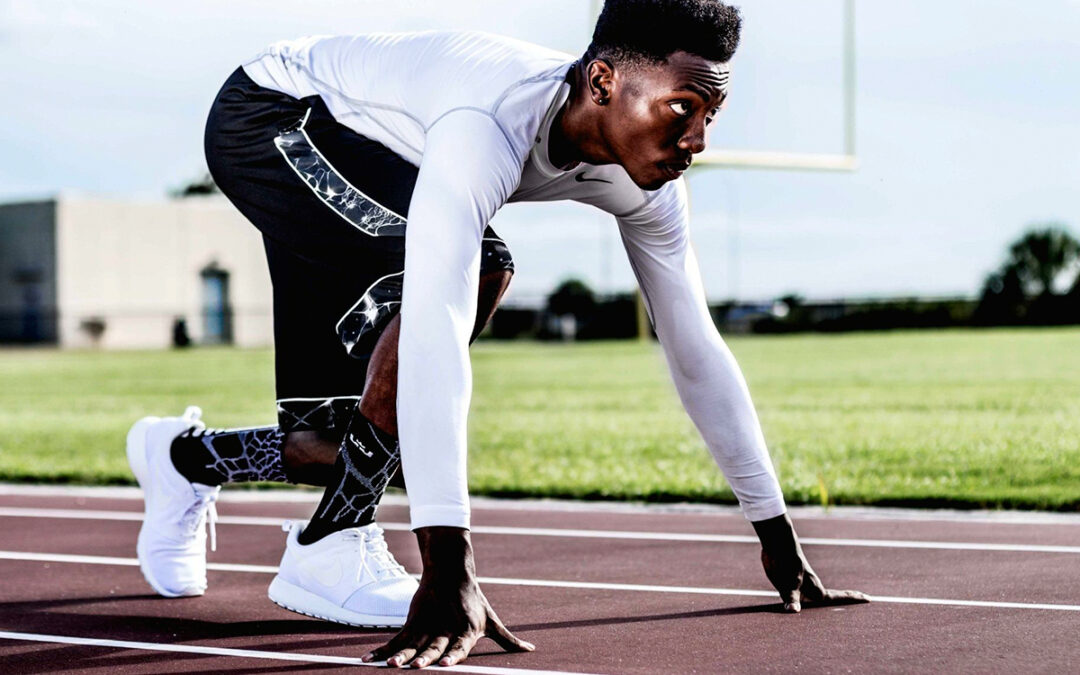Athletes devote most of their lives to hours of physical training, perfecting the precise movements for their sports and challenging their body’s limits. But what about mental training? Are athletes trained to overcome Sports Performance Anxiety?
Simone Biles’s recent withdrawal from the competition, at the Tokyo Olympics, revived the conversation about Mental Health and created a domino effect that is still causing reactions to this day.
Coincidently, a new study followed 186 Canadian athletes training for the 2020 Olympics. The results showed that nearly 42% of the athletes have symptoms of, at least, one mental disorder. The more prevalent being depression, anxiety, and eating disorders. The research also pointed out that athletes’ training load and stress levels can be predictors of depression and anxiety.
Nevertheless, Sports Anxiety is not exclusive to Olympians. It is a relevant issue for all athletes, from professionals to those in friendly competitions. “I should be grateful” is something I hear a lot in my practice, but it doesn’t necessarily hide the pain that may come from neglecting one’s needs.
Normalizing mental training and focusing on Mental Health as a daily practice, as opposed to dealing with it only after crises, can really improve athletes’ sports performance, self-confidence, and well-being.
So, how can you overcome Sports Performance Anxiety? Here are some strategies that can help you manage your anxiety by training your mind.
1. Set specific and achievable goals
Goals that are too big and vague can make you feel overwhelmed and insecure about your abilities. Define clear goals that guide you through the action plan and help you measure success.
Keep in mind that goals should be achievable, to help you keep motivated and focused, but at the same time challenging. Also, try to break each goal into a series of small tasks that you can accomplish within a certain timeframe.
2. Focus your attention on the task at hand
Attentional focus is the ability to tune out distractions, like a noisy crowd or your own worries and expectations. This allows you to manage your mental focus even when your own body is trying to hijack your attention.
A few strategies that you can train include, deep breathing, paying attention to your body signals and sensations, and mindfulness to help you focus on the present moment.
3. Develop your self-confidence
It can be hard to imagine being confident in high-stakes moments, but the good news is that it is something you can improve.
Focus on your past successes, instead of failures, and remind yourself of each time you conquered a new challenge. Practice your self-confidence every day with the same discipline as you train your body.
And when you feel invaded by those negative thoughts and fears of failure remember that they can trigger a self-fulfilling prophecy. Yes, your mind is that powerful, so use it for good!
4. Visualize yourself achieving your goal
Visualization involves creating a mental image of yourself successfully competing at an athletic event. Athletes can use this technique to envision the outcome they want to achieve, like winning a competition or performing a difficult movement.
Using visualization can help you feel calmer and more focused before an event. Also, it can improve performance, develop confidence, and manage anxiety.
Try this: close your eyes and imagine yourself doing all the movements you must master to succeed. You should be viewing the scene as if you were really there. (Rather than watching yourself from an observer’s point of view.)
5. Practice positive self-talk
It is tough to do your best in a sport when your own internal voice is telling you otherwise. Negative internal messages can really harm your performance and sports success.
So, you should work on replacing those negative thoughts with more positive ones. Research shows that practicing positive self-talk can help improve athletic performance and reduce anxiety. Also, it is known that it is more effective to do it in the long term, so make it a part of your daily practice.
Should I Look for Professional Help?
In some cases, the use of these strategies is not enough to overcome Sports Performance Anxiety. So, if you feel severe anxiety affecting your performance you should consider seeking a Therapist specializing in Sports Psychology.
A professional will help you improve your emotional and mental well-being and work with you to achieve optimal performance. Most clients experience an increase in their emotional stability both on and off the field.
Finally, keep in mind that as much as Sports Performance is important to you, it is not all you are. As Paralympic Swimmer Jessica Long recently said: “Even though I’ve won a lot of medals and performed well—from a mental health aspect — you have to realize your worth outside of swimming. Going into Tokyo, I am expected to win. But I’m going to be proud of myself no matter what my performance is.”






